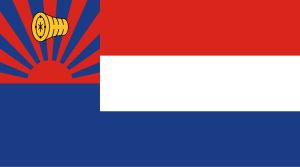An ethnic rebel group has recaptured its former headquarters close to Thailand’s borders, almost three decades after it was driven out by the Myanmar military. In a statement yesterday, Padoh Saw Taw Nee, the spokesperson for the Karen National Union (KNU), said that its troops seized the village of Manerplaw late on Monday after days of fighting.
“Our legendary Manerplaw headquarters has reached its 30th anniversary, and we view this as a Christmas gift since it aligns with the festive season,” Padoh Saw Taw Nee said, as per Narinjara News. “For clarity, the whole Manerplaw region is now free from junta control. This has been confirmed, and it brings us immense happiness.”
According to the Narinjara News report, the assault by the Karen National Liberation Army, the KNU’s armed wing, “led to the fatalities of the majority of junta troops based at the camp” and the capture of substantial weaponry and munitions, including 120mm and 81mm artillery.
Manerplaw, a village on the Thai border in Kayin (Karen) State, was established in 1975 as the proposed capital of “Kawthoolei,” the independent Karen state that the KNU has been fighting to establish since 1948. However, a split between Christian and Buddhist factions of the group in 1994 created an opening for the Myanmar military, which teamed up with a breakaway Buddhist faction – the Democratic Karen Buddhist Army (DKBA) – and captured the village in January 1995. The fall of Manerplaw sent thousands of civilians fleeing across the border in Thailand, swelling further the refugee camps that are still dotted along the Thailand-Myanmar border.
The KNU has strongly opposed the military junta since its seizure of power in February 2021. Despite more recent splits, the KNLA has clashed repeatedly with the Myanmar armed forces. In 2024, the army and allied PDFs played a particularly important role in the assault on Myawaddy, an important trading hub on the Thai border. In April, they succeeded in overrunning the main military base outside the city before the intervention of the Karen Border Guard Force, a pro-junta group led by a former commander of the DKBA, staved off the junta’s collapse.
Since the coup, the KNU has also reprised the role that it played in the 1980s and 1990s, providing shelter and training to People’s Defense Forces (PDFs) and other opponents of the military. Prior to its fall, Manerplaw was the base of the All Burma Students’ Democratic Front (ABSDF), which included hundreds of students who fled Myanmar’s cities after the military crushed pro-democracy protests in 1988, and numerous other political figures and organizations opposing military rule.
“Almost by default,” Steven Erlanger wrote in the New York Times in November 1990, “Manerplaw has become the headquarters not only for the Karen… but also for nearly every other organization opposed to the military regime.”
If confirmed, the KNU’s capture of Manerplaw would complement the long string of resistance successes in 2024, which include significant gains by ethnic armed groups and PDFs across the country, most notably in Rakhine State and northern Shan State.
The immediate military significance of the military’s loss of Manerplaw is unclear; it could well end up being just the latest in a line of pinprick losses that are gradually constricting the regions in which the military administration exercises effective control. But there is no denying that the recapture of the village would be resonant with symbolism for the KNU/KNLA – and will deliver another fillip to the wider resistance to military rule.

































